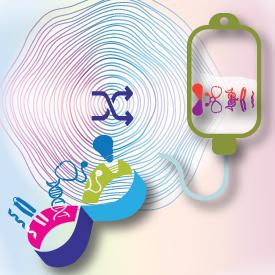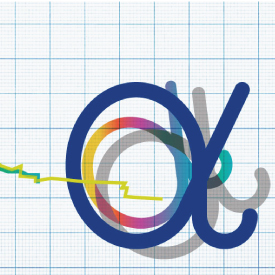Driving Medical Product Development

The OCE is committed to working with stakeholders to improve oncology product development for the benefit of people with cancer. In addition to rigorous medical product review, our funding supports research and development projects to increase knowledge that will result in better therapies and better outcomes for patients.
In this section of the OCE Annual Report, we highlight OCE projects that were newly launched or ramped up in 2021. For information about all OCE programs and projects, visit www.fda.gov/OCE.
Project Catalyst
OCE’s Project Catalyst provides guidance and educational resources to small pharmaceutical companies and academic life science incubators to support informed anticancer therapy development.
In 2021, the project developed a web page for its educational initiative, Oncology Regulatory Expertise and Early Guidance (OREEG), a self-directed platform providing early-stage oncology companies with product-type advice to inform sound product-specific drug development decisions. This platform will be updated with additional “bench-to-bedside” chats with regulatory science experts and answers to frequently asked questions.
The project welcomes questions regarding oncology drug development plans that are premature for pre-IND submission, if those questions are not covered in the available materials.
Project Confirm
Project Confirm is an OCE initiative to increase the transparency of outcomes related to Accelerated Approval for oncology indications. Project Confirm created a searchable public database listing all Accelerated Approvals granted in oncology since 1992, when the FDA began granting Accelerated Approvals.
For Accelerated Approvals that are ongoing, information on confirmatory trials required to verify clinical benefit is included. The Project Confirm webpage provides background information on the Accelerated Approval program and addresses several frequently asked questions.
Project Confirm has supported a series of OCE mini-symposia on Accelerated Approvals, presentations on the Accelerated Approval program, and academic publications in press and in preparation. Looking to the year ahead, the project aims to facilitate evaluation of ongoing Accelerated Approvals and to continue efforts to increase public awareness of the program and its outcomes.
2021 Publications
- Beaver JA, Pazdur R. The Wild West of Checkpoint Inhibitor Development. N Engl J Med. 2021;10.1056/NEJMp2116863. doi:10.1056/NEJMp2116863
- Beaver JA, Pazdur R. "Dangling" Accelerated Approvals in Oncology. N Engl J Med. 2021;384(18):e68. doi:10.1056/NEJMp2104846
Project Optimus
Project Optimus, begun by OCE in 2021, is an initiative to reform the dose optimization and dose selection paradigm in oncology drug development. Too often, the current paradigm for dose selection—based on cytotoxic chemotherapeutics—leads to doses and schedules of molecularly targeted therapies that are inadequately characterized before initiating registration trials.
The goal of Project Optimus is to educate, innovate, and collaborate with companies, academia, professional societies, international regulatory authorities, and patients to move forward with a dose-finding and dose optimization paradigm across oncology that emphasizes selection of a dose or doses that maximize not only the efficacy of a drug but the safety and tolerability as well.
In April 2021, Project Optimus emphasized the importance of improving dose selection as part of the “Hot Topics in Oncology Regulation” session at the AACR Annual Meeting. For the May 2021 approval of sotorasib for the treatment of metastatic non–small-cell lung cancers harboring the KRAS p.G12C mutation, FDA required a post-marketing study to evaluate lower doses. OCE worked within the FDA on a draft guidance to facilitate alternative dosing regimens for PD-(L)1 drugs based on pharmacokinetic-based criteria.
Throughout 2021, Project Optimus collaborated with OCE’s Project Significant on a series of sessions titled, “Designing Dose Optimization Studies in Cancer Drug Development.” In November 2021, Project Optimus partnered with Friends of Cancer Research (FOCR) and other key stakeholders to highlight potential strategies for dose optimization in a session titled, “Maximizing Benefit and Improving Tolerability for Patients through Dose Optimization,” at the FOCR Annual meeting and to publish an accompanying white paper. Project Optimus’s perspective on the urgent need for dose optimization for oncology drugs was featured in the New England Journal of Medicine in September 2021 in an article, “The Drug Dosing Conundrum in Oncology: When Less is More.”
Rare Cancers Program
Launched in late 2021, the Rare Cancers Program leverages the OCE’s ongoing initiatives to promote development of safe and effective new drugs and biologics to treat patients with rare cancers.
The Rare Cancers Program works in conjunction with the Office of Oncologic Diseases to proactively address challenges that are common to rare cancer drug development as a whole and those that are specific to each rare cancer type. The program also works closely with other FDA offices such as the Office of Orphan Product Development and the Division of Rare Diseases and Medical Genetics, other international regulatory agencies, and external stakeholders to expedite drug development for rare cancers.
Early in 2022, the program will launch a webpage, which will highlight how the OCE uses various programs and projects to develop a context-specific approach that is tailored to unique patient needs and aspects of each rare cancer, in addition to other useful resources. The program has an exciting listening session and a Rare Disease Day OCE Panel planned for the first quarter of 2022, as well other projects.
Project Significant
Project Significant (Statistics in Cancer Trials), begun in the fall of 2020, holds discussions with the Biopharmaceutical Section of the American Statistical Association and other oncology stakeholders to further the design and analysis of cancer clinical trials with the goal to advance cancer therapies.
Seven publications summarizing these discussions were published in 2021.
Oncology Real-World Evidence Program
OCE’s Oncology Real World Evidence (RWE) Program, established in 2020, advances the appropriate use of RWE in oncology product development to facilitate patient-centered regulatory decision-making. The program reviews regulatory submissions containing real-world data (RWD) across oncology review divisions within CDER, CBER, and CDRH. The program established several initiatives in RWD quality and characterization of real-world response:
- In partnership with the Regan Udall Foundation, the Oncology Quality Characteristics and Assessment of Real-world Data (QCARD) initiative seeks to develop a standardized approach to RWD characterization and evaluation of data quality for regulatory submissions.
- In collaboration with the Friends of Cancer Research, the Real-World Response Project seeks to evaluate the feasibility of improving ascertainment of tumor response within electronic health records and other RWD sources.
- The program established the Translational Evaluation and Assessment of Methods to Facilitate use of Oncology RWD (TEAM FoRWD) to bring together oncology clinical review staff across divisions interested in exploring opportunities to advance RWD regulatory science, policy, research, and education.
- Several research partnerships are underway through Research Collaboration Agreements, Broad Agency Agreements, and Centers of Excellence in Regulatory Science and Innovation.
The Oncology RWE program is active in Project Post-COVIDity to advance our understanding of how COVID-19 affects the health of patients with cancer. Research with several data providers resulted in two publications:
- Hwang C, Izano MA, Thompson MA, Gadgeel SM, Weese JL, Mikkelsen T, Schrag A, Teka M, Walters S, Wolf FM, Hirsch J, Rivera DR, Kluetz PG, Singh H, Brown TD. Rapid real-world data analysis of patients with cancer, with and without COVID-19, across distinct health systems. Cancer Rep (Hoboken). 2021 May 20:e1388. doi: 10.1002/cnr2.138
- Ackerman B, Keane C, Beaver JA, Kluetz PG, Rivera D, Paliwal P, Singh H, Mpofu P, Amiri-Kordestani L, Baxi SS. Trends in diagnosis and treatment of early breast cancer (eBC) in the United States (US) during the COVID-19 era. Journal of Clinical Oncology 2021 39:28_suppl, 227-227
Project Protect
Project Protect established a uniquely structured safety team organized by drug class to provide consistent advice and review of safety signals in the pre- and post-market setting. This new safety team supports CDER and CBER review teams.
Project Protect engaged external stakeholders to develop, expand, and customize safety data standards across CBER and CDER to expedite regulatory review and research. It also helped develop new immune-oncology focus groups. Project Protect continues to build a team of safety data analysts and data engineers to assist with safety data analytics and safety regulatory research to further the mission of OCE. In 2021, Project Protect provided support for 44 drug applications.
The project also helped develop a Safety Analysis Generator (SAG) tool customized to oncology-specific applications. Launched in March 2021, the SAG tool aids in the efficient review of applications and provides individual data



